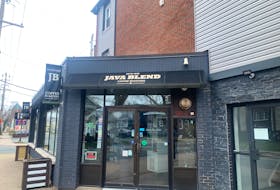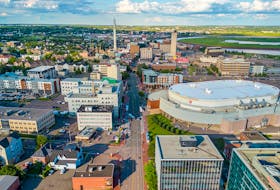Have you ever looked at the photos of a young child and attempted to project what their appearance as they mature? I have and it’s quite impossible. But looking back from a point in the future one can always recognize the progression, and question the inability to have not anticipated the inevitable change.
Our Island is like that, and for the last 150 years notwithstanding technological advancement we could have approximately projected the changes witnessed. With a meandering increase in population and always hovering below national population growth rates.
This year our little province hit a natural milestone, but one worthy of acknowledgement nonetheless. Breaking the 150,000-person barrier is cause for celebration, but the contributing data still causes some alarm. We remain on the cusp of natural population decline, where births shrink below the number of deaths per year. We continue to see more of our residents leave the province than remain, a trend a century in the making. And a concern to policy makers, our mean age is increasing. We are getting older, as we age we require more government service and we have plateaued in our taxable generation to pay for government spending. We need to stem the outflow and keep our Islanders engaged right here.
A few years of growth on P.E.I. in excess of one per cent has caused a lot of strain on parts of our policy eco-systems. We have witnessed urban densification, school expansions and shortages of shelter supply. Framed as negative, these are all measures of progress and growth. Also trends we should expect to continue.
Our economy has rarely been so strong and the future looks very bright. With the challenges and opportunities that 150,000 residents bring, I often think what our economy, landscape and society might look like at 160,000 people. What about 200,000 people.
We are marching toward this destination although uncertain of the pace. Not inconsistent with global population projections the Island will continue to grow. Globally, in 2050 the global population was 2.55 billion people, today we are 7.3 billion, by 2030 8.5 billion. With this comes challenges and economic growth.
According to P.E.I.’s most aggressive population targets we could be 160,000 people by 2021; 200,000 people before 2050. It is time, now, for planners and policy makers to lay the foundations for this growth at minimum. I believe many are.
Communities that wish to thrive need to consider the amenities required to keep attention outside the center. Urbanization will increase and the growth will accelerate. Super schools may be required as families forgo commutes to attend the best possible education as trade-off for non-unban lifestyle.
Agricultural land value will increase as communities encroach and the pastoral vistas of the Island will be dotted with increased footprints of civilization sprawl. Much construction is required to meet anticipated demand for shelter and accommodation.
Healthcare will be consolidated as acuity demands intensify and services consolidate. Infrastructure such as roads will also keep pace as demanded by tax payers, shrinking the Island and improving access to services unavailable in traditional settings.
These changes are predictable and unavoidable. Suspending growth is akin to holding back the sea; the pace can be artificially stemmed but eventually the forces will win. The key is to plan for this. Progressive communities, in particular, need to plan. The myopia of council election cycles needs to be replaced with a communicated twenty-year vision.
These are the challenges and opportunities facing future generations and decisions made now will determine who thrives and who recedes in a competitive growth environment.
Blake Doyle is The Guardian's small business columnist. He can be reached at [email protected].









